The 15th of Av: Matchmaking in 2023
Matchmaking, style 2023 – Putting the heart together with technology
In almost every family in the religious sector, there is a single man or woman looking for their better half. According to the data, there are 50,000 individuals seeking companionship in the Zionist-religious sector. Unlike the ultra-Orthodox public, the matchmaking institution in this sector is not as established, so some people took this painful data and decided to take action. We took notice of initiatives of private individuals who decided to make a difference with the tools that the 21st century has to offer and build relationships in Israel
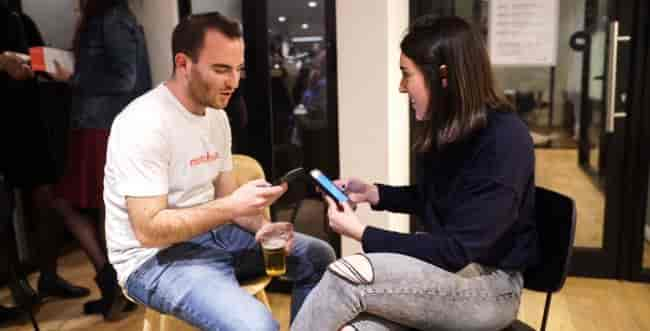

In almost every family in the religious-Zionist sector, there are single men or women seeking their better half. According to the data, there are 50,000 individuals looking for companionship in this sector. Unlike the ultra-Orthodox community, the matchmaking institution in this sector is not as established, so some people have taken this painful data and decided to take action.
We came to know of initiatives of private individuals who decided to make a difference using the tools that the 21st century has to offer to build relationships in Israel.
A council member who deals solely with matchmaking
Adi Gross, a member of the Givat Shmuel city council, where one of the largest populations of singles in the country resides, points an accusatory finger at politicians and exclaims: "The religious public's leaders have committed a grave sin! They have neglected the young men and women. Before the Land of Israel, there are the people of Israel.
This is the most important and least spoken about issue. No politician from the sector ever approached me and said, 'Come, create a project for the youth, advance this story.' Jerusalem has sinned a great sin," he concludes with pain.
When Gross joined the city council, he pledged to secure a budget for the benefit of the singles, and the municipality became the first in the country to budget meetings and activities for singles.
His motivation comes from Yoni Netanyahu. His parents, and his brother were kidnapped in the Entebbe hijacking, and they owe their lives to him. In his letters, Yoni Netanyahu wrote: "A person does not live forever, and he must live his life to the fullest. He must strive to fulfill them to their fullest."
Gross took this sentence as a legacy and initiated an independent matchmaking project without any compensation. He meets with potential matches, offering matchmaking only after he thoroughly gets to know the young man or woman. He sits with them, delves into details, and is not afraid to reprimand them when necessary.
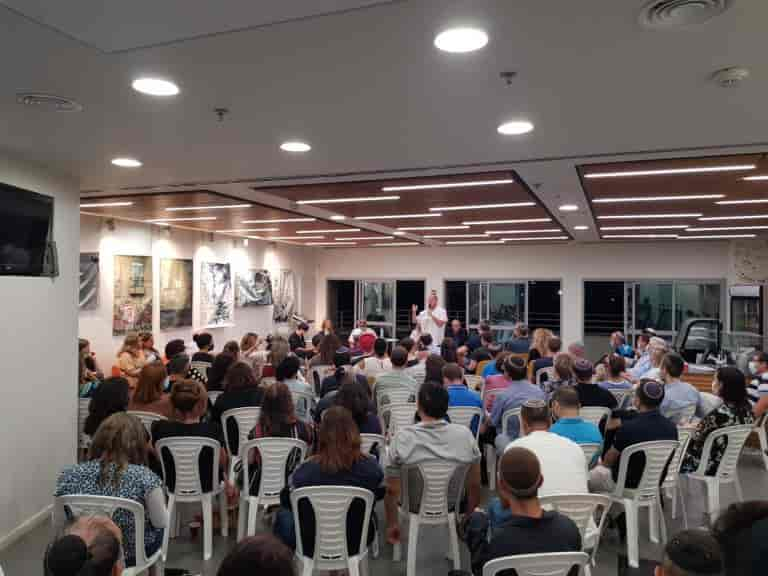

Gross's message is clear: "Turn every stone, travel, meet people. If you see someone interesting, turn to me, I will help you." And from the married couples, he asks: "Each person sitting at a wedding should commit to making one proposal a week, to increase Ahavat Chinam, and to build homes."
Gross has already voluntarily matched 23 couples and proudly shares that he already has "grandchildren" from these marriages. He invests days and nights in organizing meetings for singles, arranging lectures by experts like Paula and Leon, Amit Segal, Sivan Rahav Meir, a body language specialist, nighttime tours, holiday events, speed dating, and everything possible to facilitate connections between the genders.
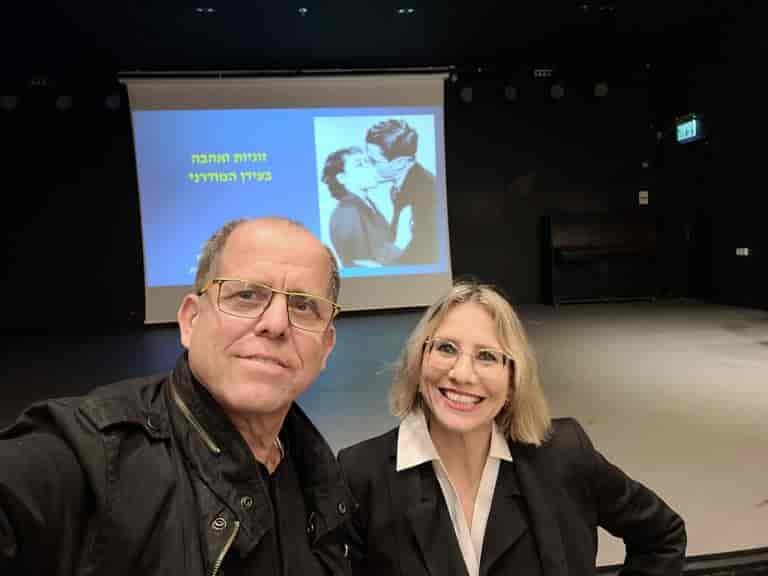

Matchers app - "I came to help a friend", friends match up friends
Barak Drori from the town of Tekoa is also involved in the matchmaking issue, and he has created a completely free app called "Matchers," specifically aimed at friends of the matched individuals. Drori explains the idea behind the initiative: "Every single person's dream is to spontaneously meet their soulmate on a bus or in a random encounter on the street, when all her papers fly in the wind...
But if we are to be realistic, most couples meet through a third party who introduced them. Considering this link, we decided at Matchers to invest, and the matched individuals will be happy to receive a proposal from a good friend rather than from an anonymous person."
Drori shares with us how it all began: "Five years ago, I was with a friend, and we decided to organize a matchmaking event where people would matchmake their friends. We set the event for the next day, posted it on Facebook, and ordered two pizzas. 50 people arrived at the event, and, of course, we ordered more pizzas," he recalls with a smile.
"At the end of the evening, participants approached us and asked when our next event would be. We didn't understand who 'your event' referred to, but we realized that we needed to act quickly, so we opened more matchmaking events."
The events organized by Barak and his friends were packed, branded to fit the modern era of 2023 with contemporary web design, youthful and fun atmosphere, refreshments, good food, and lots of good intentions to make a match.


Drori explains that during the period of the pandemic, social interactions were limited, so they developed the app "Matchers." In essence, the matchmaker introduces a friend to the database and looks for someone suitable for them. When they find a potential match, with the help of the algorithm, they contact the matchmaker to learn more about the person, thus providing a more precise and filtered match for their friend, eliminating irrelevant options.
He describes the initiative enthusiastically: "We took the traditional matchmaker, added a bit of red color and artificial intelligence, and created Matchers - an app that arranges dates for your friends and gives you paradise." The app has thousands of matchmakers, and new "matchmakers" are added every day, all of whom are enthusiastic about helping others. Barak calls on everyone to join the app and become a matchmaker, stating, "It has become a trend that does so much good in the world."
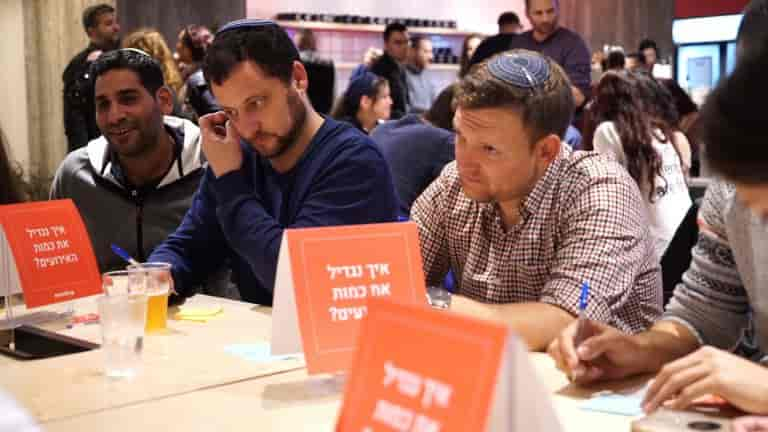



"The other half" - WhatsApp groups with daily offers
Amunah and Malachi Tzurial from Peduel got to know each other through the initiative that Tzurial established while serving in the army. He created WhatsApp groups for dating between his friends. The initiative grew, and today the association "HaChatzi HaSheni" (The Other Half) operates WhatsApp groups according to age, separate for men and women.
Every day, the group administrator posts a profile with a person looking for a partner, along with two photos. Those interested in the individual can contact the group administrator, who then connects them with the other side of the equation, leading to an introduction. There are dedicated WhatsApp groups for younger people, older people, traditional individuals, second marriage candidates, and individuals with disabilities.
The activity began three years ago, and already 48 couples have married through the initiative. The project is entirely voluntary, with the administrators working on a voluntary basis, including the CEO and even the association's accountant.
The Tzurials also organizes Shabbat gatherings for candidates based on age groups. Amunah describes with excitement: "We got to know each other during the initiative's first Shabbat, and the upcoming Shabbat will be the tenth one we organize. There are lectures, activities, and speed-dating throughout the Shabbat. But most importantly, we are there to provide support to those who are nervous." To join the groups: 0502990403.
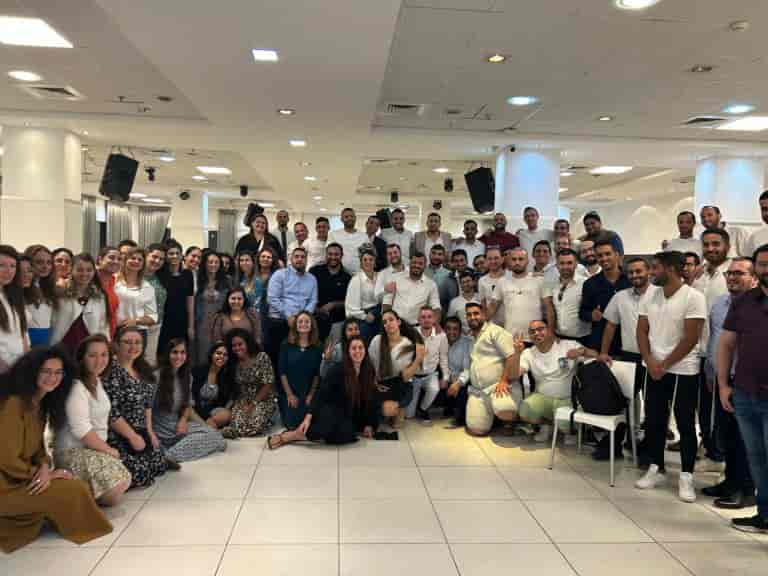

"Shalom B'Chaylech" - A project for religious-Zionist Torah-observant individuals
Lior and Ariella Almakais are a young couple, both 24 years old, and parents of three children. They live in Eli, and the topic of matchmaking is close to their hearts. When they got married, they matched a couple of their friends and promised themselves that when Lior would be discharged (from the army), they would continue doing it.
After Lior was discharged, they started in a simple and even amateurish way, just sending messages to friends saying, "If anyone is interested, we would be happy to help." From there, it grew. Today, they are the matchmakers of Yeshivat Eli, and as a result, the yeshiva provides them with a salary for their matchmaking work.
The boys who realize it's their friend, someone they know from the study bench, feel at ease to ask for a proposal. Ariella adds, "We're not the traditional matchmaker's type; it reassures the boys and girls. We are their age." She also adds an interesting fact: "Once, we used to chase after the boys, but now they are the ones approaching us on their own initiative."
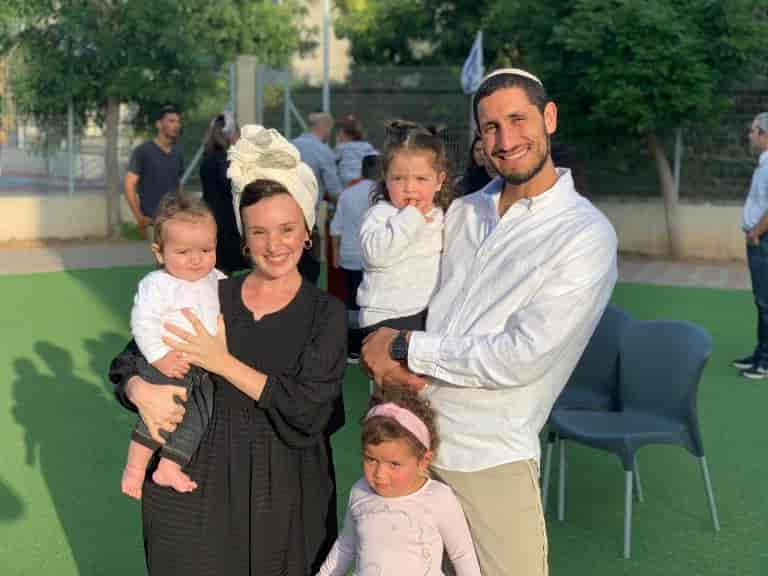

Another project that Ariella is involved in is "Shalom B'Chaylech," which targets young religious-Zionist Torah observant girls looking for boys from yeshivot (Torah study institutions). "These are good girls who don't have a brother in yeshiva or married friends, and simply don't receive proposals. They can sit half a year without a proposal," Ariella painfully shares.
Therefore, a few women started the project, where a girl comes to stay with one of the partners and tells about herself face to face, heart to heart, without technology, just like in the past. "From there, we turn to matchmakers of yeshivot and look for a boy who can match the exact details she gave us during the meeting."
The innovation in the project is that a girl doesn't need to go to matchmakers and approach them repeatedly. She goes through one interview, and from there, many doors open. The responses Ariella receives from the girls are touching, as they share that the journey to marriage is tough and painful, feeling like a meat market. But when someone cared about them and saw them, it made the difference.
The project takes a symbolic amount of money, but for the girls, it provides a comfortable feeling to approach and ask questions. "I admire everyone who comes to us, takes responsibility, attends the interview, pays money, breaks down barriers, and opens up to proposals," Ariella concludes with excitement.
"Parents also have responsibility"
Ronit Agayof, an educator and teacher at a well-known yeshiva for girls who has married off two of her children in the past year and a half, wants to convey a message specifically to the parents: "In my view, we, the parents, have responsibility.
Responsibility to accompany them in the process, responsibility to find them a suitable match, to maintain an open dialogue, to guide them, to be there for them with an open line of communication. On the other hand, not to worry excessively about our children, not from a place of pressure, God forbid, but to allow ourselves to express what is on our minds."
She shares that her son, who studies in a well-known yeshiva in the community, received a call every week from neighbors looking for a match for their daughter. He no longer felt comfortable answering them every week, either the father would call or the mother. Initially, he considered a specific young man, but he recently enlisted and was not interested.
Her son was no longer comfortable answering their calls; he tried to match with a few young men, but the offers declined quite quickly. The parents did not give up for a whole year. After a year, the weekly phone call returned, and her son responded with great discomfort, not knowing what to say to the parents anymore.
The moment he hung up the phone, he decided to reconsider the first young man, and to his delight, the young man agreed to go out. Needless to say, they hit it off, and they got married. Ronit attributes the success to the persistence of the parents who took responsibility for their daughter.
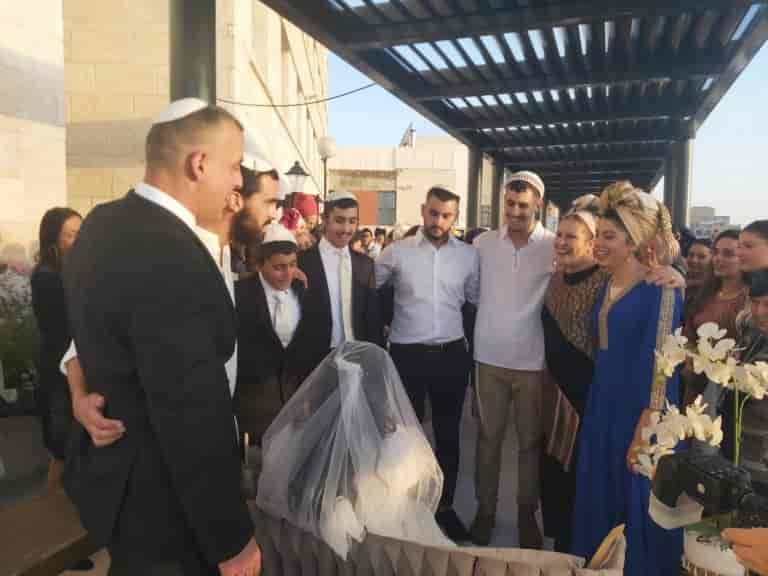

It is evident that the issue is close to her heart, and she says with pain: "Why is it clear to us in the religious sector that parents will pay for the wedding, but it is not clear that they should be there before? As a parent, when a child reaches the appropriate age, there is no platform to approach, no order, no schedule. We are at the mercy of people's kindness who might remember our child. The market is tough."
Because this is the struggle of the generation, Ronit suggests that people offer a large sum of money to whoever finds a match for their son or daughter and just as they spend on the wedding, they should also spend on the matchmaking. According to her, this will incentivize people to find a match; it will motivate them to be proactive. When we are proactive, something eventually falls into place. It is a tremendous zchut," she concludes with a big smile.